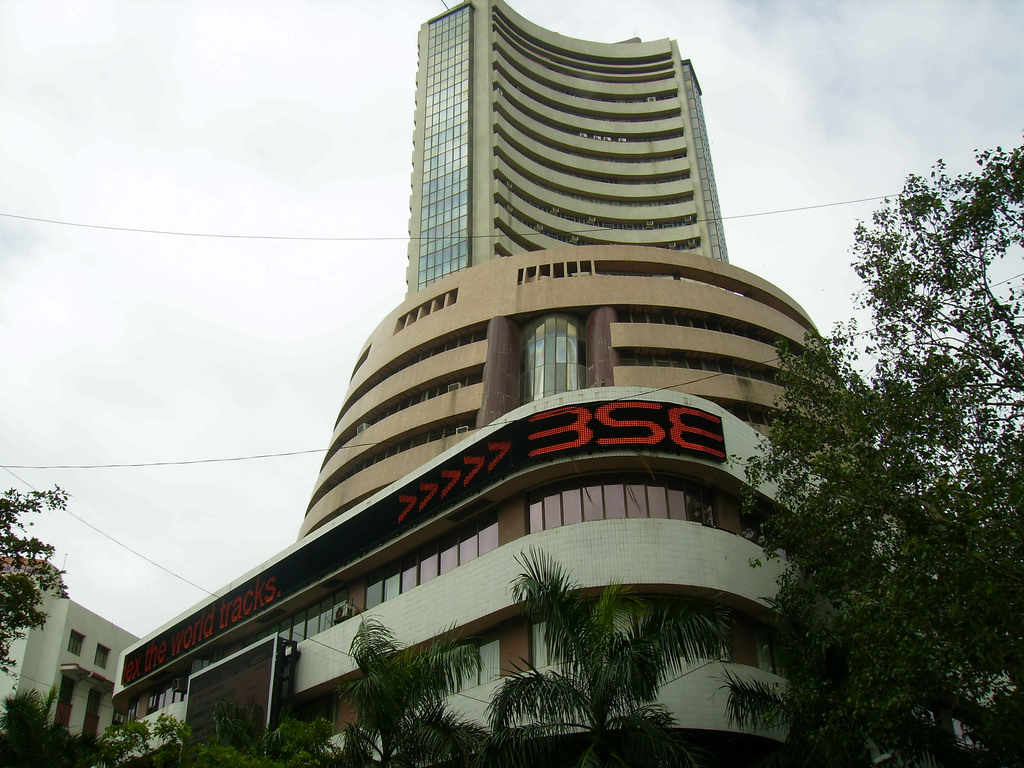Stocks were clobbered and the rupee slid past the 72-mark against the US dollar as the markets were convulsed by a steady stream of depressing economic data from official and private channels even as the Narendra Modi government showed no signs of adopting a fiscal stimulus to quell the rising rumble of despair.
The Sensex tumbled by 769.88 points, or 2.06 per cent, to 36,562.91 — its biggest fall since October 2018 — while the rupee tumbled 97 paise to a nine-month low at the end of a skittish day of trading at 72.39 against the greenback.
Indian equity investors lost Rs 2.55 lakh crore of wealth on Tuesday, according to data available with the Bombay Stock Exchange.
Data released by the Central Statistics Office (CSO) last Friday showed that real GDP growth had fallen to a six-year low of 5 per cent in the first quarter of this year. Market sentiment cratered as figures released on Monday showed that growth in the eight core industry sectors had plunged to 2.1 per cent in July, auto sales had crashed by nearly a third in August over the past year, and factory activity had slumped to a 15-month low with the IHS Markit India Manufacturing Purchasing Managers’ Index (PMI) sinking to 51.4 in August, its lowest since May 2018.
Spooked by those figures, foreign portfolio investors continued to dump Indian stocks and scurry to the safety of US investments despite their weak returns.
The 30-share BSE Sensex opened lower at 37,181.76 before hitting a day’s low of 36,466.01, a fall of around 867 points. The broader Nifty also sank 225.35 points, or 2.04 per cent, to settle at 10,797.90.
With all the sectoral indices in the BSE showing declines of up to 2 per cent, investor wealth dropped Rs 2.55 lakh crore with the market capitalisation of BSE-listed companies falling to Rs 1,38,42,866.10 crore.
Banking stocks wilted in response to finance minister Nirmala Sitharaman’s announcement of the proposed merger of 10 state-run banks, with the Nifty PSU bank index dropping 5.3 per cent and all its constituents closing with losses.
On the inter-bank forex markets, the rupee opened lower at 72 against the US dollar and lost further ground to touch a low of 72.40 against the dollar.
“The rupee is likely to depreciate towards 73.50 by the end of September 2019 if the trade war escalates between the US and China and outflows from Indian equity market continues,” said Vaqarjaved Khan, research analyst, Angel Broking.
“The sharp fall in the first quarter GDP growth to 5 per cent and the weak core sector growth are the key factors that have caused a fall in the market as it opened after a long weekend.
“The continuing negative global cues, the raging tariff war between the US and China, and the likely sluggishness in the economic fortunes of economies around the world have also been behind the rot in the markets here as well as elsewhere.
“Weak domestic consumption, especially rural consumption, has resulted mainly from low employment levels and non-availability of finance, which are issues that call for immediate measures to salvage the situation,” said Dr. Joseph Thomas, Head of Research at Emkay Wealth Management.
The Modi government’s response to the avalanche of depressing data has been to announce an ineffectual set of measures including the rollback of an ill-advised tax surcharge on foreign portfolio investors which have failed to stem the tide.
Provisional data sourced from the National Stock Exchange revealed that the FPIs were net sellers to the extent of Rs 2,600 crore on Tuesday. In July and August, these investors had sold stocks worth Rs 30,000 crore.










